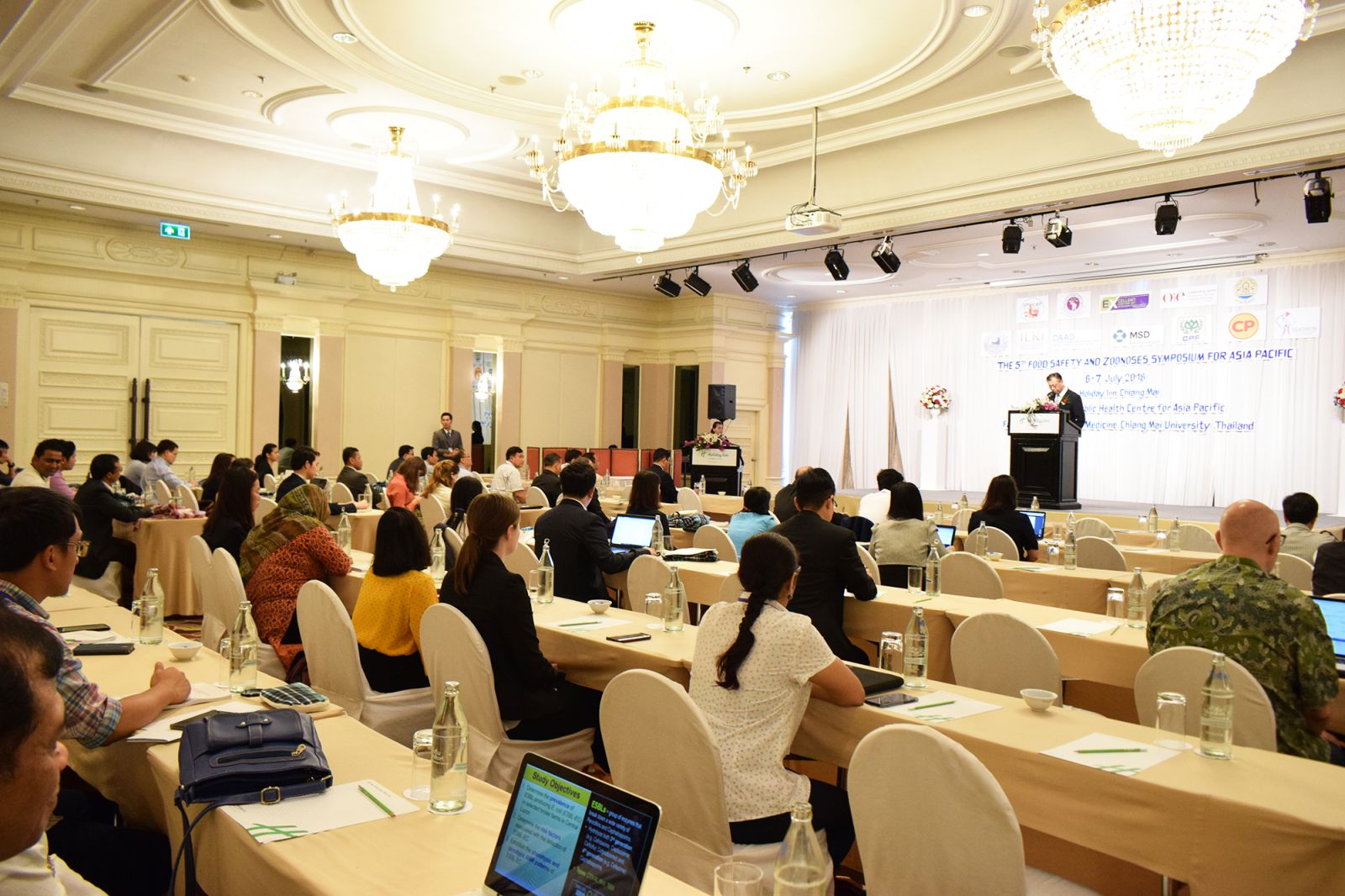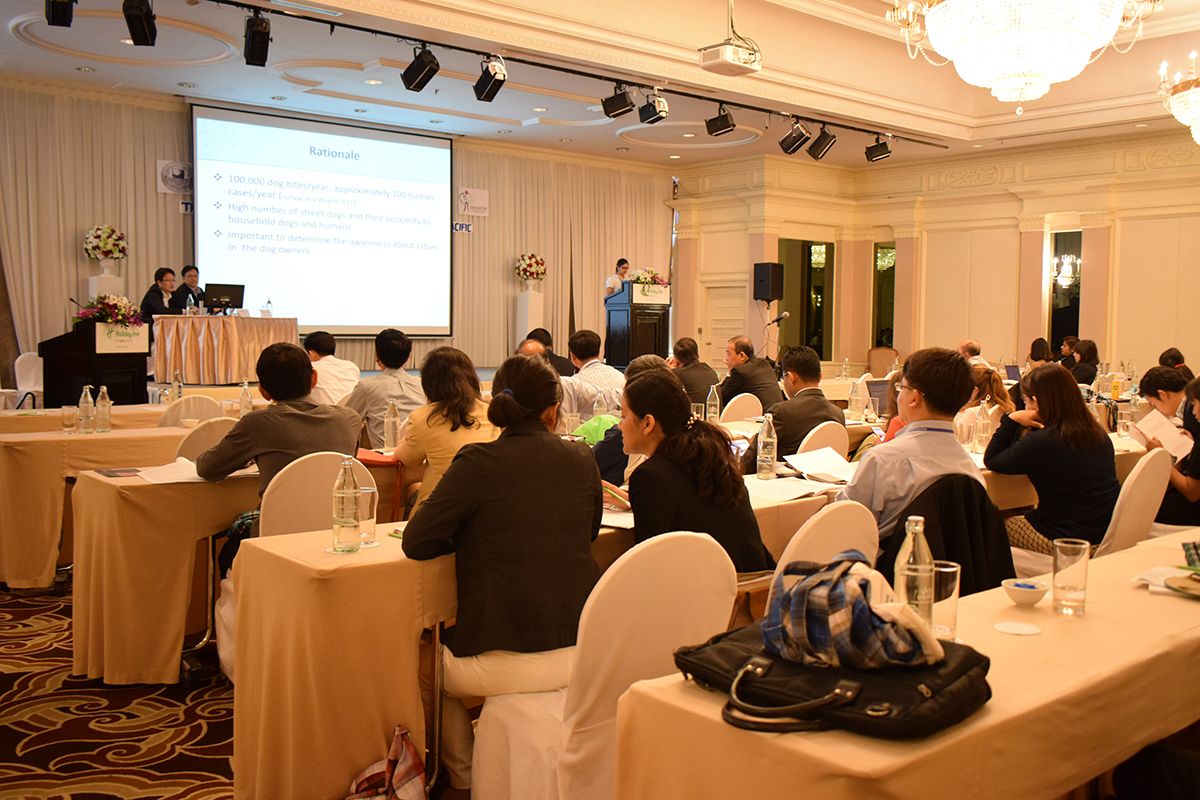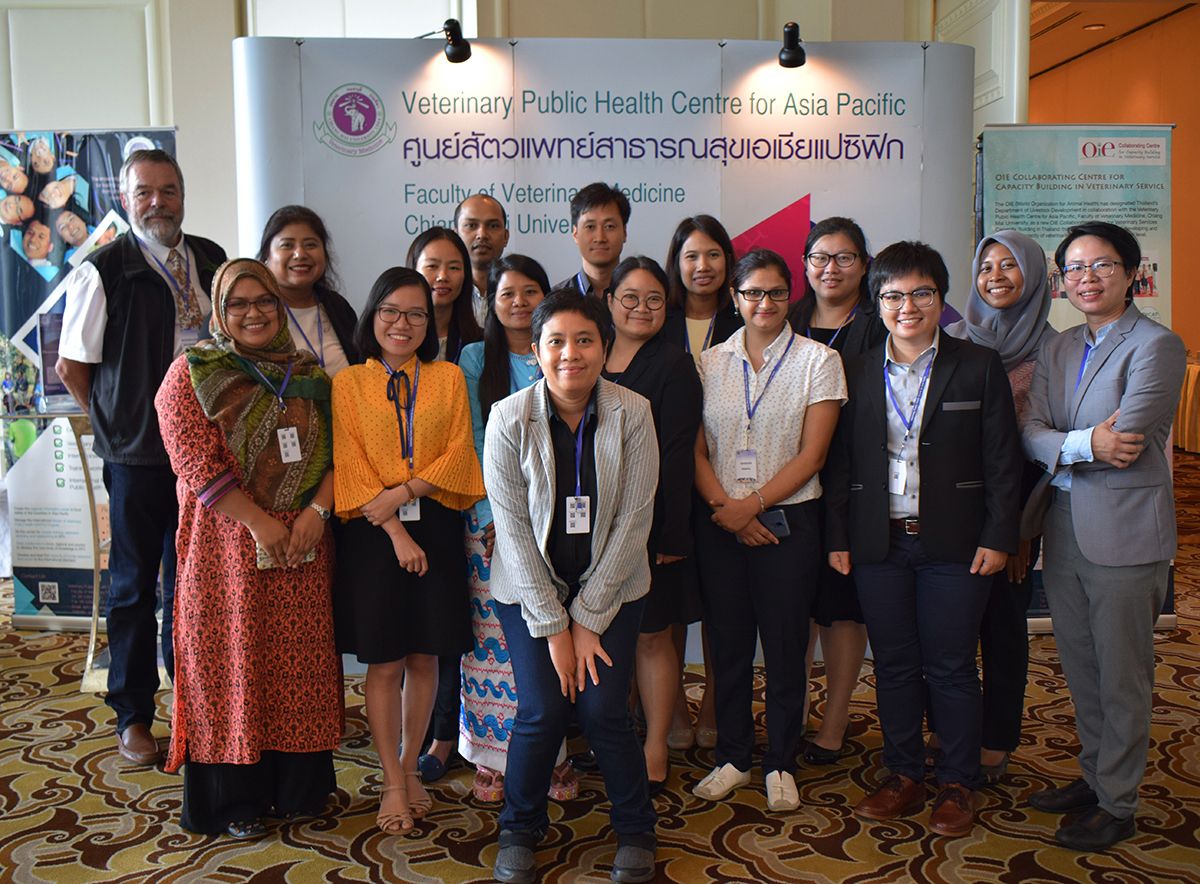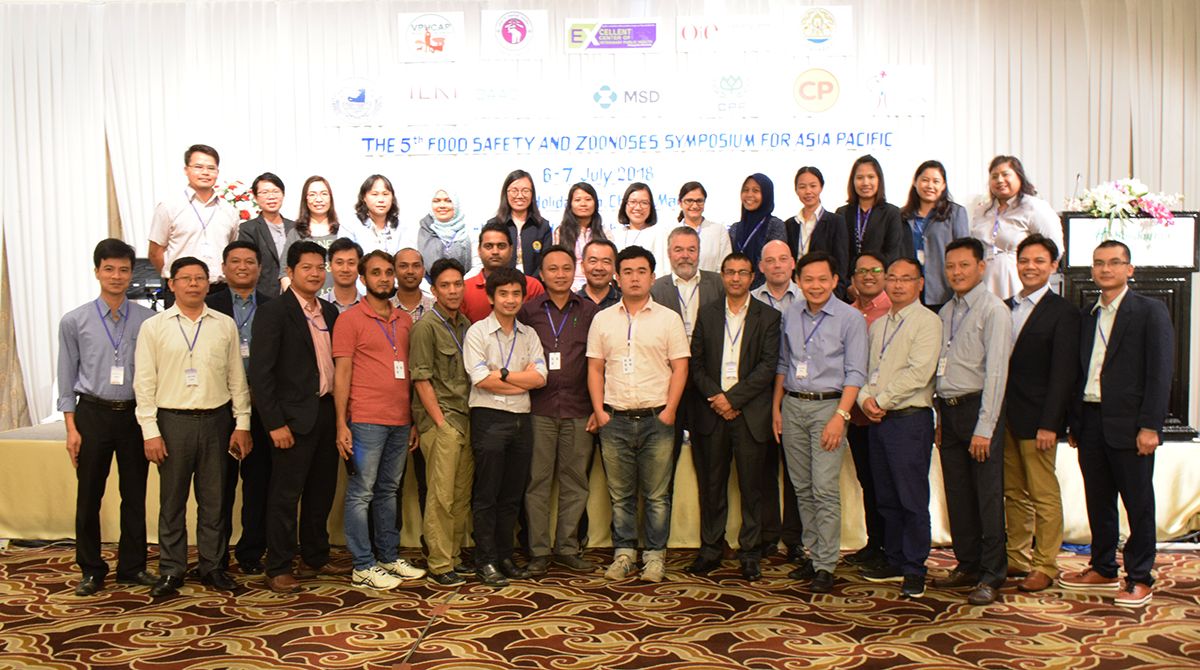
The Global Health Institute – Thailand (GHIT) has been organized annually by VPHCAP, in collaboration with academic partners, since 2012. With a strong focus on the One Health approach, the program strengthens technical skills and fosters collective action for public health, food security, and ecosystem health. By promoting interdisciplinary health education, GHIT provides opportunities for participants from Asia and beyond to explore leadership roles in tackling global health challenges and contributing solutions to protect present and future generations.
GHIT 2018 Program Highlights
Held from 2–13 July 2018 in Chiang Mai, GHIT 2018 was distinguished by the integration of the 5th Food Safety and Zoonoses Symposium for Asia Pacific and the DAAD Alumni Club Meeting. The program included:
-
One Pre-Conference Course (Week 1)
-
The 5th Food Safety and Zoonoses Symposium for Asia Pacific (6–7 July)
-
DAAD Alumni Club Meeting (7 July)
-
Three Post-Conference Courses (Week 2)

A total of 137 participants from 15 countries joined the workshops.
Short Training Courses Offered
-
Global Health Leadership
-
Application of Molecular Epidemiology
-
Risk Analysis in Practice to Improve the Food System
-
Geographical Information Systems (GIS) and Spatial Analysis
The 5th Food Safety and Zoonoses Symposium for Asia Pacific
The symposium, held on 6–7 July, focused on Knowledge and Skills for Addressing Emerging Infectious Diseases at the Convergence of Animal, Human, and Environmental Health. Its main objective was to strengthen international academic, research, and operational collaboration for knowledge transfer, experience sharing, and collective action on food safety and zoonoses in the Asia Pacific region.
Themes included:
-
Emerging and re-emerging diseases
-
Antimicrobial resistance
-
Application of risk analysis
-
Epidemiological tools and applications
-
Food safety and hygiene
The symposium was attended by 108 participants, including young and mid-level university lecturers, master’s and doctoral students, from 14 countries: Bangladesh, Cambodia, China, France, Germany, Hong Kong, Indonesia, Myanmar, Nepal, the Philippines, Taiwan, Thailand, the United States, and Vietnam.


DAAD Alumni Reunion – Networking through VPHAAP
The Veterinary Public Health Association for Asia Pacific (VPHAAP), established in 2010 and legally registered in Nepal in 2011, convened its DAAD Alumni Meeting on 7 July 2018. VPHAAP serves as a professional network for DAAD alumni, MVPH alumni, German and Thai professors, and international researchers, dedicated to advancing knowledge in veterinary public health. The association focuses on organizing events, disseminating knowledge, and strengthening prevention and control of zoonoses, food safety, and emerging infectious diseases across Asia Pacific. Currently, VPHAAP has more than 80 members.
Meeting Outcomes: Communication and Networking
Two key issues were discussed:
-
Communication Platforms – While Facebook is widely used, limited access in some countries highlighted the need for multiple platforms. Members agreed that email should remain the official communication channel.
-
Country Focal Points – To improve coordination, alumni in each country agreed to designate focal points responsible for updating member information (email, position, affiliation) annually.
Alumni Focal Points
-
Bangladesh – Ajijur Rahman Al Azad
-
Cambodia – Vandara Loeurng
-
China – Tingrui Zhang
-
India – Hans Raj Khana
-
Indonesia – Nurochmah Ishiyama
-
Lao PDR – Vannaphar Tammajedy
-
Malaysia – Saira Bang Binti Nohaned Rejab
-
Myanmar – Than Naing Tun
-
Nepal – Mukul Upadhaya
-
Philippines – Samuel Joseph Castro
-
Sri Lanka – Muralithas Mahalingam
-
Thailand – Warangkhana Chaisowwong
-
Vietnam – Duong Van Nhiem